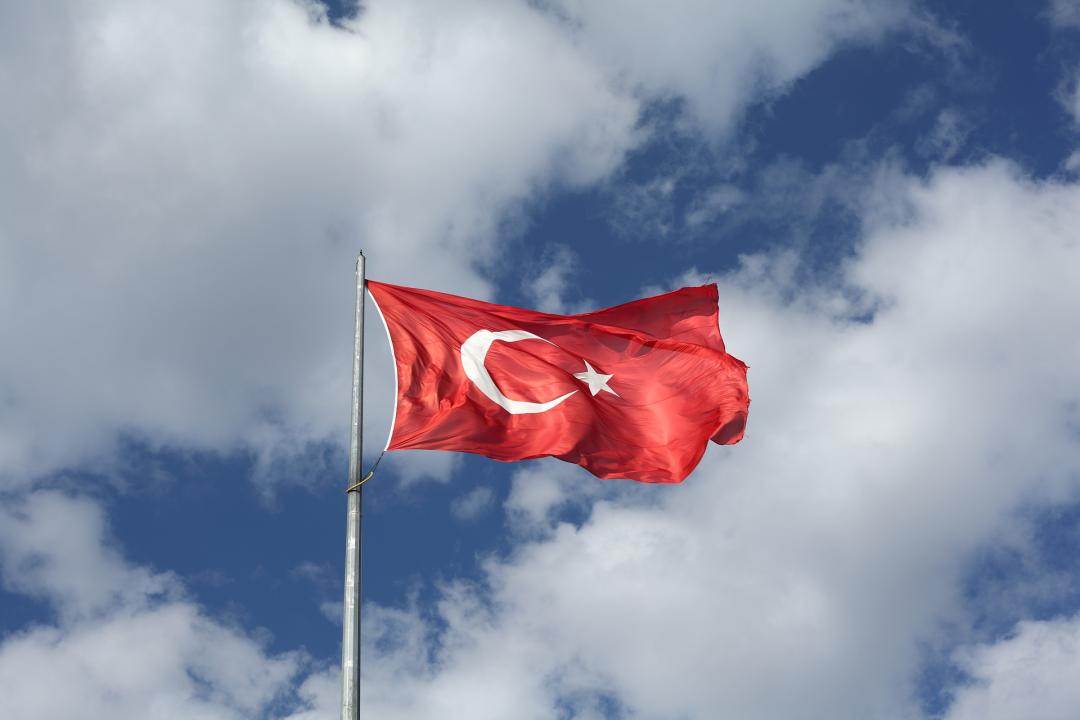
What Motivates Turkey’s Rhetoric on the Recent Border Clashes between Armenia and Azerbaijan?

During the recent border clashes between Armenia and Azerbaijan, voices outside the two nations unequivocally called for restrain, most notably in Russia, the country that has traditionally been seen as the de-facto veto power in this conflict and which is locked into a formal military treaty alliance with Armenia through the CSTO. Yet, Turkey stood out as the one exception to this. Repeatedly escalating its rhetoric, Ankara seemed committed to take Baku’s side in this conflict. So, the question arises, what interests drive Turkish behavior on the matter of the Armenian-Azerbaijani border clashes?
We can dissect Turkish interests on the matter into three major areas. First, Turkey has a vested interest in the conflict for the reason of cultural affiliation within the geopolitical context. The strong Turkish commitment to Azerbaijan is nothing new and Baku has taken the center-stage for Turkish efforts to bolster Ankara’s influence in the Turkic world after the fall of the Soviet Union. Azerbaijan, deeper integrated into Turkey’s geopolitical orbit than other Turkic nations by the mere fact of geographical proximity, serves as the lynchpin-state in Ankara’s engagement with the Turkic post-Soviet sphere. These engagement efforts started in the early 1990’s with the foundation of the International Organization of Turkish Culture and culminated in 2009 with the establishment of the Turkic Council, whose goal is the strengthening of cooperation in numerous areas. If Ankara wants its advances into the Turkic sphere to be taken seriously, it cannot appear weak when it comes to fundamental issues concerning its closest Turkic partner. Azerbaijan can therefore be seen as the bellwether test for Turkish commitment towards the Turkic world. This does not mean that Ankara is likely to take any further military actions beyond the already existing forms of cooperation with Azerbaijan, as Shiriyev and De Waal stated to Al-Monitor, though it does explain the heightened rhetoric that is utilized to signal strength and support towards its “Turkic brethren” more generally. This issue extends to the domestic sphere in Turkey, as nationalist fervor and historically found anti-Armenian sentiment drive the government towards a strong reaction in times of heightened hostilities between Armenia and Azerbaijan – at least in rhetorical terms. This is especially relevant now, as Erdogan’s political support seems to have shrunk recently due to an economic downturn.
Secondly, Turkey is in the midst of a growing geopolitical rivalry with Russia. Though some observers predicted a closer cooperation between Russia and Turkey a few years ago, relations between the two have severed over the proxy wars in Syria and Libya. Even though Russia has provided arms to both Armenia and Azerbaijan in the past and allegations of Moscow using the frozen Nagorno-Karabakh conflict as a tool to entrench its role as a powerbroker in the South Caucasus are common, Moscow is still seen as Armenia’s security guarantor. By inserting itself more strongly into the conflict, Ankara visibly challenges Russia in its own sphere of influence, hoping to avenge some of the geostrategic-and reputational losses suffered at the hands of Moscow in the Syrian civil war. Assuming that Turkey is probably not interested in a direct military involvement, this seems like a brash gamble. Though, so far, Ankara’s is reliance on Russia’s unwillingness to escalate the conflict has paid off and officials in Moscow seem uncomfortable with the recent developments.
Lastly, Turkey takes a strong interest in the situation as a matter of energy security. The most surprising development about the recent clashes was not the fact that the frozen conflict turned hot all the sudden, but where the firing took place. The Tovuz region is not part of the territorial conflict between Azerbaijan and Armenia. For Turkey though, hostility in this area is generally risky as the TANAP project runs close to where the military clash occurred. Ankara has been highly dependent on Russian gas imports and pays relatively high prices to import the commodity. Along with the import of LNG, TANAP has been Turkey’s most promising attempt to break free from this dependency by shifting its energy imports to a trusted partner and diversifying its energy sources more generally. During May this year, Bluestream went out of operation, while Turkstream's delivery capacity was limited to 50% in July. These pipelines were previously the main infrastructure for the export of Russian gas to Turkey. According to the Turkish Regulatory Authority for the Energy Market, Russia is now only the fourth largest gas supplier in Turkey. In March 2019, the country still received 72% of its gas imports from Russia. With TANAP under threat though, Turkey will not only be subjected to the risk of supply shortages but might have to enter talks with Moscow in order to renew its somewhat less than perfect energy-agreement that expires next year. If Ankara believes that Armenia is behind the recent escalation of violence, its harsh rhetoric could be an attempt to deter Yerevan from deteriorating the stability of this region any further.
With these three areas of interest in mind, one can understand Ankara’s rhetoric. Though the Turkish government might take a similar standpoint in case of any future escalations, its willingness to follow up its rhetoric with a proactive military action is highly unlikely. Ankara’s strategy is, indeed, mainly based on appearances and rhetoric. If Russia and the CSTO member states should ever decide to take a more confrontational stance on the issue, Ankara might very well have to reverse its course and join other external powers in their call for restraint.
-Philip Roehrs-Weist
Folge Philip Roehrs-Weist auf Twitter @RoehrsWeist
See Also


Mirzoyan Meets US Deputy Assistant Secretary Joshua Huck

Azerbaijani President Holds Talks with UAE and German Business Delegations on Economic Cooperation

Grigoryan Confirms Armenia’s Readiness to Dissolve OSCE Minsk Group Upon Peace Treaty Signing

Azerbaijani Official Warns of Ecological Risks to Caspian Sea, Similar to Lake Urmia and Aral Sea

